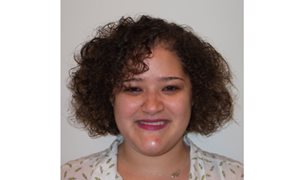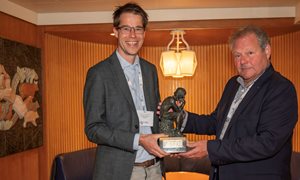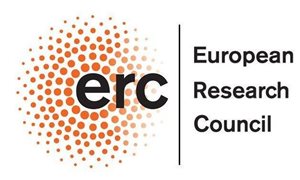 Michiel Vermeulen, theme Cancer development and immune defense, is partner in EpiSyStem: Epigenetics and System Biology of Stem cells and Reprogramming - an Innovative Training Network (ITN) funded by the H2020 Marie Sklodowska Curie actions: Paris, France.
Michiel Vermeulen, theme Cancer development and immune defense, is partner in EpiSyStem: Epigenetics and System Biology of Stem cells and Reprogramming - an Innovative Training Network (ITN) funded by the H2020 Marie Sklodowska Curie actions: Paris, France.
This multidisciplinary approach will enable profound training and deep, systems-level understanding of chromatin biology and epigenetic regulation of stem cells, differentiation and reprogramming, with a strong support by industrial partners.
In addition to a competitive training program in a top research institute, successful applicants will enjoy exchange programs, workshops on emerging topics in stem cell epigenetics and bioinformatics, international conferences and meetings, and much more.
There are positions available:
- Institut Curie, France — Genevieve Almouzni
- Hubrecht Institute, Utrecht — Alexander van Oudenaarden
- The Hebrew University of Jerusalem, Israel — Oren Ram; Eran Meshorer
- Radboud University, Nijmegen — Michiel Vermeulen
- Helmholtz Zentrum, Germany — Magdalena Götz; Maria-Elena Torres Padilla
- University of Milan, Italy — Giuseppe Testa
- KadimaStem, Israel
- Diagenode, Belgium
Related news items

T cell immunity is directed by tetraspanin CD53
5 July 2022 T cells are immune cells that are key for the defense against pathogens and cancer. T cells depend on the membrane protein CD45 to initiate T cell receptor signaling, but how CD45 is controlled at the molecular level is poorly understood. go to page
A single protein complex balances the very first lineage decision of cells in human: towards foetus or placenta
21 June 2022 The international group of researchers spearheaded by Dick Zijlmans and Hendrik Marks together with colleagues from KU Leuven, examined which proteins are associated with the chromatin and how this affects gene transcription. go to page
Dutch Society of Clinical Chemistry Science & Innovation Award for the team of Hans Jacobs
14 June 2022 The team of Hans Jacobs pioneers on the development of personalized diagnostics to measure minimal residual disease in patients with multiple myeloma. go to page
European grants for groundbreaking Radboudumc research Professors Roshan Cools and Peter Friedl receive ERC Advanced Grant
26 April 2022The European Research Council (ERC) is awarding grants to Roshan Cools and Peter Friedl, both professors at Radboudumc. While Cools will investigate how brains control behaviour in (stressful) situations, Friedl will work on developing a new cancer therapy.
go to page
Saponin-based adjuvant-induced dendritic cell cross-presentation is dependent on PERK activation published in Cellular and Molecular Life Sciences
20 April 2022 Lisa Huis in ‘t Veld, Nataschja Ho and colleagues from the team of Gosse Adema published in Cellular and Molecular Life Sciences that Saponin-based adjuvant-induced dendritic cell cross-presentation is dependent on PERK activation. go to page
Rubicon grants awarded to three RIMLS researchers
19 April 2022Three researchers have received Rubicon funding from NWO/ZonMw. This will enable Elke Muntjewerff, Laura de Vries and Laurens van de Wiel to do research at a foreign research institute for the next two years.
go to page